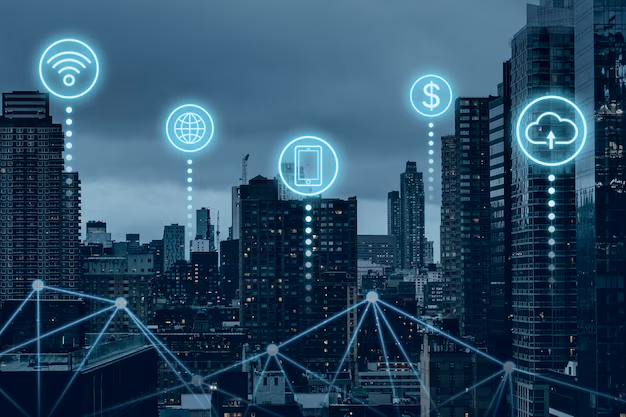The Future of the Internet of Things (IoT)
The Future of the Internet of Things (IoT): What Lies Ahead?
The Internet of Things (IoT) has transformed industries, homes, and everyday life, enabling seamless connectivity between devices and data-driven decision-making. As we look to the future, the evolution of IoT promises even greater advancements, shaping the way we live and work. Let’s explore what lies ahead for IoT and how it will redefine technology in the coming years.
1. The Rise of AI-Driven IoT
Artificial Intelligence (AI) and Machine Learning (ML) are set to play a pivotal role in the future of IoT. Smart devices will not just collect data but analyze it in real-time to make intelligent decisions. This means:
- Enhanced automation in homes and industries
- Predictive maintenance in manufacturing and healthcare
- Smarter traffic and city management in smart cities
2. 5G and Enhanced Connectivity
The rollout of 5G networks will significantly boost IoT capabilities, allowing devices to transmit data faster and more efficiently. Benefits of 5G-driven IoT include:
- Lower latency for real-time applications
- More reliable connections in smart homes, cities, and industries
- Support for billions of connected devices globally
3. Edge Computing for Faster Processing
With the increase in connected devices, cloud computing alone won’t be enough. Edge computing will become more prevalent, enabling devices to process data closer to the source. This will:
- Reduce latency and improve response times
- Enhance security by minimizing data transmission
- Lower dependency on centralized cloud systems
4. Security and Privacy Enhancements
As IoT adoption grows, so do security concerns. Future developments will focus on:
- Stronger encryption and authentication protocols
- AI-driven security solutions to detect threats in real-time
- More stringent data privacy regulations and compliance standards
5. IoT in Smart Cities and Infrastructure
IoT is already being used in smart city initiatives, but future applications will be even more advanced, including:
- Intelligent transportation systems that reduce congestion
- Smart grids for efficient energy management
- AI-powered waste management and resource optimization
6. Wearable Technology and Healthcare Innovations
The healthcare sector will witness a surge in IoT-driven solutions, with advancements such as:
- Remote patient monitoring and telemedicine solutions
- AI-powered diagnostic tools for early disease detection
- Smart wearables for real-time health tracking
7. Industrial IoT (IIoT) and Automation
Industries will further integrate IoT with automation and robotics, leading to:
- More efficient supply chain management
- Reduced downtime through predictive maintenance
- AI-driven quality control and production processes
Final Thoughts
The future of IoT is incredibly promising, with innovations that will reshape industries, improve efficiency, and enhance everyday experiences. However, challenges such as security risks, data privacy concerns, and infrastructure scalability must be addressed to fully unlock IoT’s potential.
As technology advances, IoT will continue to evolve, making our world more connected, intelligent, and efficient. Businesses and individuals must stay ahead of these trends to harness the full benefits of the Internet of Things.
What are your thoughts on the future of IoT? Share your opinions in the comments below.


